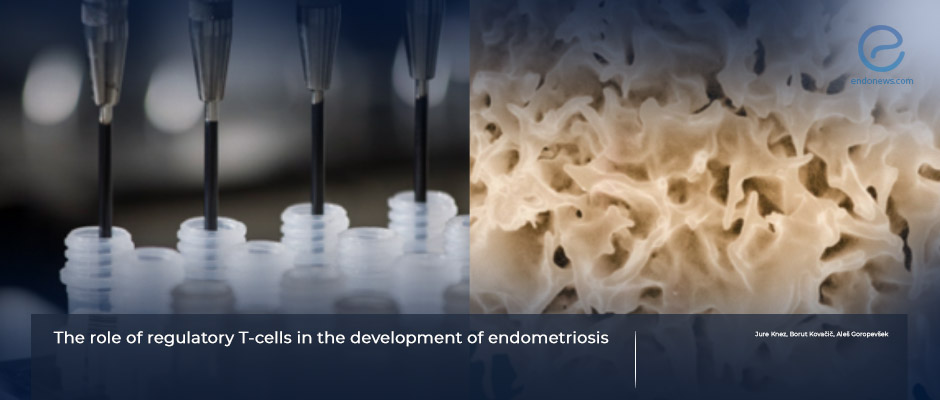Regulatory T cells influence on endometriosis development
While the exact cause of endometriosis is still debated, various theories are being investigated. One approach focuses on the immune system. Regulatory T-cells (Tregs) are crucial in suppressing inflammatory immune responses and preventing autoimmune diseases, allergies, infections, and cancer. Knez…
Key Points Lay SummaryInterleukin-35 expression in B lymphocytes: A new potential biomarker?
Regulatory T-cells (Tregs) and B-cells (Bregs) play a crucial role in establishing tolerance to self-antigens and suppressing immune activity. Therefore, in endometriosis, they are requisite for the endometriotic cells to survive outside the uterus. They suppress immune activity by producing…
Key Points Lay SummaryThe role of IL-33 and "T-regs" in lesion progression and fibrosis in endometriosis
It has been recognized that immune regulation likely plays a crucial role in endometriosis. Regulatory T cells (Tregs) are important immune regulators, and studies have linked Tregs to endometriosis development through signaling pathways involving TGF-β1 and PDGF. IL-33, an inflammatory…
Key Points Lay SummaryMyeloid-Derived Suppressor Cells are gaining importance in endometriosis
Dr. Wertel and associates from Polish academic centers published their sentimental review paper on the role of "Myeloid-Derived Suppressor Cells" in human diseases, in a recent issue of Cells. Endometriosis, the most common gynecological disease affecting about 10% of women globally,…
Key Points Lay SummaryAltered Immunity in Endometriosis
In recent years, there has been increased attention on the role of immune system in endometriosis development. Normally, immune reactions are supposed to destroy endometrial cells seeding in the peritoneal cavity. Nonetheless, in endometriosis, these cells are able to evade,…
Key Points Lay SummaryT-Cell Dysfunction May Worsen Endometriosis
Researchers from the Kyoto Prefectural University of Medicine, Japan, have found that T regulatory lymphocytes (Treg) may be the reason for the formation of the chronic inflammatory environment involved in endometriosis, a study published in The Journal of Clinical Endocrinology &…
Key Points Lay Summary
 By Eylül GÜN
By Eylül GÜN



 By Nasuhi Engin Aydin
By Nasuhi Engin Aydin

 By Yu Yu
By Yu Yu

 By Murat Osman
By Murat Osman